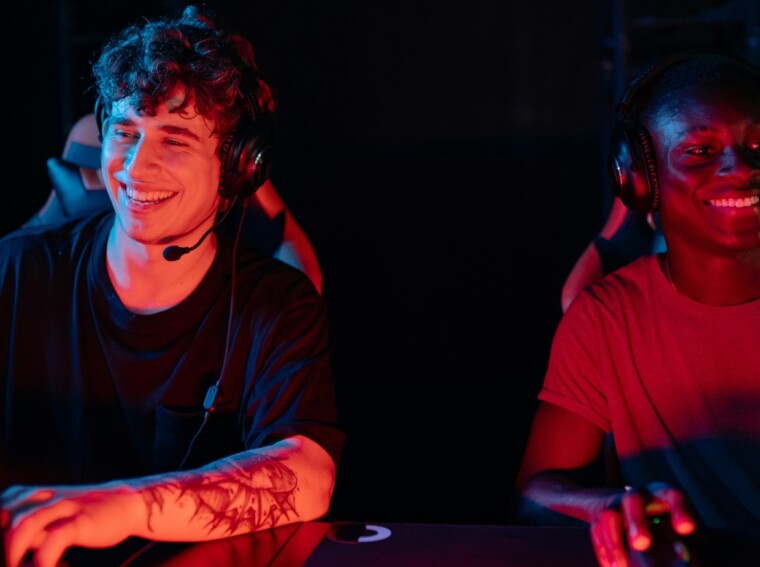Gaming and betting would seem like two worlds that do not overlap, but they really share more in common than most would give them credit for. Casual gamers and weekend punters alike are generally drawn in by the same things—unlocking rewards, earning in-game currency, or taking advantage of free bets.
Microtransactions in video games and free bets in betting websites function from the same central premise: they provide a hassle-free way in while allowing for the opportunity for more engagement. With gaming and betting becoming more and more intertwined, it is worth examining how these two markets consistently bring gamers and punters back for more.
The Emergence of Low-Risk Involvement
One of the most significant reasons that casual players and gamblers become involved is that entry is so low-risk. Several free-to-play video games enable players to play without ever spending a dollar, with in-game spending available later as a choice. In the same way, sportsbooks appeal to newcomers with free bets and no-deposit bonuses, providing a low-commitment point of entry.
Both markets excel at luring players in with free content. In gaming, this is done with free trials, log-in rewards, and bonus content. In betting, there are deposit matches, risk-free bets, and reward schemes. These strategies lower the cost of entry and welcome people in without requiring investment upfront.
A Shared Strategy
Microtransactions have transformed the gaming environment, allowing gamers to purchase cosmetics, power-ups, or virtual currency with real money. Microtransactions have also moved into the betting environment, with users having the option to buy additional features such as enhanced odds, betting boosts, and, in a limited number of cases, entry in special tournaments for bets.

Likewise, players buy skins in Fortnite or card packs in FIFA Ultimate Team. Bettors wager in features that provide them with more control and customization—either in in-game avatar customization or in choosing bets in a way that maximizes winnings.
In-Game Money Equivalent for Gambling
Likewise, video game players use virtual currency to unlock content and likewise, leisure gamblers appreciate reward systems like the Betway Voucher, which provides them with free credits that can be used in betting. These vouchers function as in-game currency, allowing players to experiment with betting opportunities without using their own money.
For leisure gamblers, these promotions provide a risk-free way of testing tactics, much like a player would play with in-game currency before betting with real money. The popularity of gaming and betting illustrates the psychological appeal that comes with receiving and spending virtual rewards.
The Psychological Power of Rewards
Reward systems in gaming and betting exist intending to encourage continued play. Players seek achievements, level-ups, and log-in rewards. Bettors, on the other hand, are drawn by the promise of cashback, free spins, and VIP clubs. The two markets both utilize the same reward psychology that drives individuals to remain active and entertained.
This approach has worked very well. Casual players do not set out with the intention of spending money within the game, just like most gamblers do not set out with the intention of betting more than their free bets. But with rewards and promotions on offer, it is tempting to stay active.
Two Sides of the Same Coin
Both free bets and free-to-play gaming have a strong resemblance. They both provide the consumer with a sample of what the experience is like enabling one to experiment with multiple approaches or gameplay mechanisms with ease.
The gamer would utilize free in-game currency to experiment with different characters or weapons before ever spending money. Likewise, the recreational gambler would utilize a free bet to experiment with different types of bets before deciding their style. This “try before you buy” mentality is now the cornerstone of both markets, allowing a risk-free way in which individuals can play and maximize the odds that they will spend in the future.
The Social Factor
Another important similarity is the growing socialization of gaming and betting. Multiplayer gaming allows friends to cooperate, compete, and interact in real-time. Meanwhile, online and offline betting communities offer a place for discussions, tip-sharing, and competition among friends.

In the same way that gamers discuss tactics, trade in-game currency, or play in cooperative mode, punters trade predictions, celebrate victories, and discuss sports. Social media groups and internet forums offer a community in both settings, making the activity more interactive and engaging.
The Role of Limited-Time Offers
Gaming and betting platforms frequently utilize limited-time promotions to retain their audiences. In video gaming, these come in the form of seasonal events, limited-time skins, and time-limited challenges. In betting, the same is done with special odds boosts, event-based free bets, and time-limited promotions.
These methods produce a sense of urgency, prompting infrequent users to act before the offer runs out. The transience of such deals compels people to revisit, ensuring continued interaction with the platform.
The Future Of Casual Engagement
As gaming and betting markets become more advanced, it is clear that the combined mechanisms of reward systems, free bets, and microtransactions will play a larger role in shaping how the user engages. Punters and gamers alike are drawn by the prospect of low-risk, high-reward experiences that allow them to sample a range of features from the platform before fully committing.
Whether it is via a Betway Voucher, in-game money, or promotional offers, these markets have figured out how to get their players to return for more. Their trick lies in the equilibrium of accessibility, reward, and the potential for entertainment at no initial cost. Casual gamers and punters alike now overlap the lines between the two, showing that gaming and betting engagement strategies have more in common than first appears.
